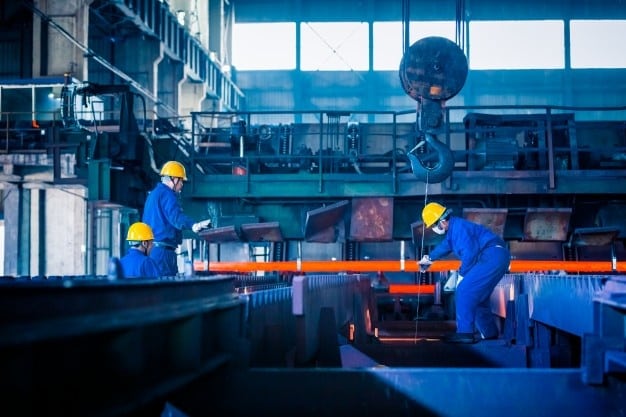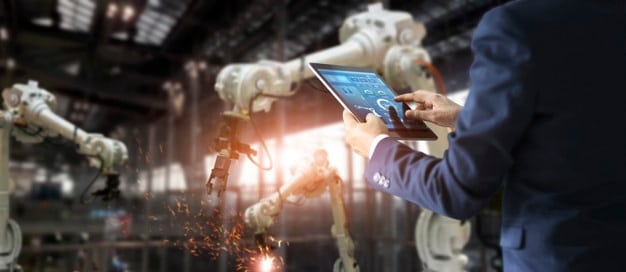

Digital transformation is a combination of traditional manufacturing processes enhanced with new advancing technologies, working together to drive manufacturing forward and address inefficiencies in the current sector. Driven by technology, manufacturers will transform production and reshape businesses, creating greater efficiency and better relationships between producers, suppliers, and customers. Manufacturers are looking at how technologies like IoT, machine learning, and artificial intelligence (AI) can be used to optimise supply chains, improve factory performance, accelerate product innovation, and enhance service offerings.
Digital transformation starts by collecting data from machines on the plant floor, assets in the supply chain, or products being used by customers. This data can be combined with other business data and then modelled and analysed to gain actionable insights.
Let us take a look at three manufacturers—Festo, Kao, and AkzoNobel—and see how each one is using technologies like IoT, machine learning, and AI to accelerate their digital transformation.

Based in Germany, Festo sells electric and pneumatic drive solutions to 300,000 customers in 176 countries. The company’s goal is to increase uptime for customers by providing predictive maintenance offerings as software as a service (SaaS) offerings. Festo’s strategy is to connect machines to the cloud with Azure IoT and then enable customers to visualise data along the entire value chain. One of the first SaaS offerings is Festo Dashboards built on Azure. Festo Dashboards provides a clear and intuitive status of equipment like sensor temperatures and valve switches. With Festo Dashboards, manufacturers can more easily monitor energy consumption, quickly diagnose faults, and optimise production availability.
Kao, one of Japan’s leading consumer brands, sees the consumer market evolving. Today, consumers prioritise their product experience over product quality. They also look to social media for purchasing guidance. These behaviours lead to forecasting challenges. To keep up with these changes, Kao sought to better understand individual customers and categorise trends into micro-segments. The company terms this approach “small mass marketing.” Kao designed a data analysis platform using Microsoft Azure Synapse Analytics and Microsoft Power BI to predict consumer trends for their detergent, cosmetic, and toiletry products. The Kao team combined data from real-time purchases, social media, and historical sales. Kao competes more effectively using predictive models, and chain store employees are empowered with real-time information for selling.
Dutch paint and coatings leader, AkzoNobel, is active in more than 100 countries. The company has honed the art of colour matching for two centuries for cars, buildings, and interiors. One of the company’s businesses is developing the paint to repair cars when drivers have an accident. Manufacturers in the car and other industries constantly dream up new finishes to give their models an edge on the competition.
To keep up with rapid rate of change, AkzoNobel introduced Azure Machine Learning into its colour prediction process. Previously, scientists laboured in labs to adjust, recalibrate, and tweak a colour until it was just right. The company worked with its scientist and technicians to integrate machine learning into their development process. The main impact is seen in the lab, where teams are now able to create more colour recipes, more accurately, in less time. Previously, it could take up to two years to get a colour ready. Now AkzoNobel is seeing new paint colours ready in one month.

Spanish Point help deliver the vision for innovative new technologies for building your companies information architecture for today and tomorrow.